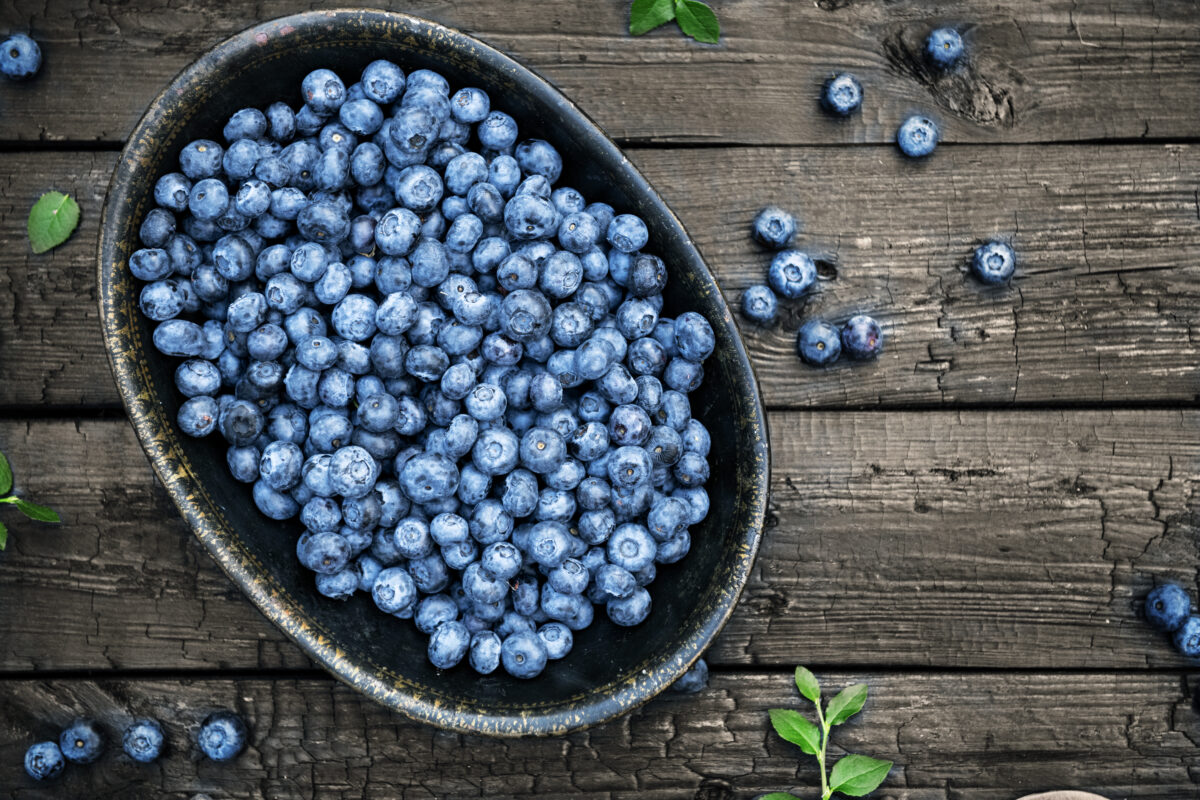Good news, blueberry fans: your favorite fruit is back in season again. It’s time to head to the farmer’s market, roadside fruit stand, or grocery store and pick up a few pints—or more—of this superfood. You can even pick your own at one of Tennessee’s many pick-your-own farms and stands.
“There’s a long list of great reasons to eat blueberries,” says Melissa Perry, a registered dietitian for BlueCross BlueShield of Tennessee. “First of all, they’re delicious and versatile. You can eat them by themselves or add them to just about anything. But perhaps most importantly, blueberries are packed full of nutrients. They are even good for your brain.”
How do blueberries help your brain?
Melissa: It’s not just about green leafy veggies, fatty fish, and walnuts anymore. Add blueberries to your list of “brain foods.”
Blueberries also contain some pretty powerful antioxidants. Specifically, they contain flavonoids, which can keep your cells healthy, reduce inflammation, and help fight off cell damage that leads to cancer.
One of those flavonoids is a substance called anthocyanin, which gives the berries their deep blue or purple color. They can protect your brain cells from the effects of aging. That’s key because it may help by protecting you against the oxidative stress that might interfere with your ability to form new memories. That could help prevent memory loss and improve cognitive function. Eating blueberries rich in flavonoids and other compounds may even reduce the chances you’ll develop certain neurodegenerative diseases like Alzheimer’s disease.
You might also experience other improvements to your memory if you regularly eat blueberries. According to a recent study in the American Journal of Clinical Nutrition, people who drank a beverage containing wild blueberry powder experienced improved cognitive and vascular function. The antioxidants in the blueberries seemed to increase blood flow to key parts of the participants’ brains. As a result, the people who consumed the blueberry product not only enjoyed memory improvement, they also experienced better accuracy on tasks that required attention and focus.
Blueberries may even have the potential to improve your mood. Some research has shown that a wild blueberry supplement may help ward off symptoms of depression.
Blueberry health benefits
Melissa: In addition to the brain benefits, there are many reasons to make blueberries a regular part of your diet.
- Antioxidant effect. Blueberries can help lower blood pressure and reduce your risk of developing heart disease or having a heart attack or stroke. They may also improve your body’s sensitivity to the hormone insulin, which helps you regulate your blood sugar and may help prevent the onset of type 2 diabetes. Plus, polyphenols may help reduce muscle pain and inflammation after workouts.
- High in vitamin C. A one-cup serving of blueberries provides 24% of your recommended daily allowance of vitamin C. Vitamin C, which is also an antioxidant, helps your body produce collagen, a protein used to make skin, cartilage, blood vessels, tendons and ligaments. It will help your body absorb iron, repair tissues and heal wounds.
- Low in calories. A one-cup serving of blueberries only contains about 80 calories. Plus, you’ll get about four grams of fiber.
- Folate. Blueberries contain folate, which is important for maintaining the health of your nerves. Pregnant females need to be especially careful about making sure they get enough folate, since it can lower the chances of neural tube defects in their babies.
Easy ways to eat more blueberries
Melissa: You can eat blueberries as often as you’d like. Your overall nutritional goal is to eat five servings of fruits and vegetables every day. A half-cup of blueberries is considered one serving of fruit. That’s very easy to do. Here are a few ways to boost your blueberry consumption this summer:
- Grab a handful and eat them plain
- Add some blueberries to a smoothie
- Sprinkle blueberries on top of your yogurt
- Add a cup to muffin or pancake batter
- Add to oatmeal or cereal
- Toss with other fruits and nuts and add to a salad
- Use in salsa or chutney.
More from Melissa Perry on WellTuned.
Get more information about specific health terms, topics and conditions to better manage your health on bcbst.com. BlueCross BlueShield of Tennessee members can access wellness-related discounts on fitness products, gym memberships, healthy eating and more through Blue365®. BCBST members can also find tools and resources to help improve health and well-being by logging into BlueAccess and going to the Managing Your Health tab.


